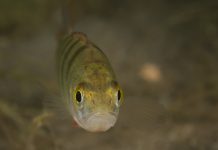UNIVERSITY PARK, Pa. — Pennsylvania farmers and homeowners should remain aware of possible armyworm infestations that could continue to appear within the next week in hay pastures, grain fields and lawns near agricultural fields.
John Tooker, assistant professor of entomology in Penn State’s College of Agricultural Sciences, said that it has been a long time since an armyworm outbreak has occurred.
“Every 20 or 30 years, we’ll have a booming outbreak of some insect species,” he said. “This one doesn’t have a regular schedule. We get armyworms in Pennsylvania every year, but this year the population for some reason is huge.”
Areas
The outbreak may be related to the unusual spring weather, according to Tooker, but it is hard to say with certainty. He has heard widespread reports of armyworm infestations in Ohio, New York and Ontario.
Tooker explained that armyworms eat more as they grow older, so 80 percent of the damage they cause occurs when they are in their final two stages of growth before becoming moths.
“It can seem that the damage comes out of nowhere,” he said. “But what happens is that the caterpillars have been feeding away inconspicuously, and then damage becomes noticeable in the last two stages when they really start feeding voraciously.”
Damage
The insect feeds at night on corn, wheat or other grasses, damaging different portions of the plants. In corn, they take large chunks out of the leaves, damaging large portions of the field.
In wheat, leaves are eaten, but the most noticeable damage is clipping of wheat heads. In grass or hay fields, armyworms consume the leaves and seed heads, so all that is left are the round stems of the plants.
Lawns can be overrun by armyworms once they move out of grain fields into adjacent residential areas.
These caterpillars are called armyworms for their tendency to march en mass to the next source of food — crossing roads and anything else that is in their path.
Treatment
Tooker said that the main tactic to treat a field or lawn for armyworms is to use the appropriate insecticide. A list of recommended insecticides for grain crops can be found in the Penn State Agronomy Guide online. The Pest Management section contains further information on managing armyworm and other pests.
Before using any pesticide product, always read the label and carefully follow all directions and safety precautions.









